I’ve discovered that I was autistic in my thirties. By then, I’d spent years thinking something was “wrong” with me because keeping my home clean felt impossibly hard. No matter how motivated I felt, I couldn’t stay consistent. I’d try to start cleaning, get overwhelmed, shut down, and then beat myself up for not doing “simple” tasks everyone else seemed to handle easily. The reality was that autism and cleaning? They don’t mix that well!
Discovering I was autistic flipped the entire story. Suddenly, my struggles made sense, not because I was lazy, messy, or undisciplined, but because my brain processes sensory input, routines, and executive tasks differently. And honestly? That realization alone was such a relief. It meant there wasn’t anything wrong with me. I just needed cleaning strategies that worked for my actual brain.
If you’re here, maybe you’ve felt that same frustration. The good news? Cleaning can become easier. Not perfect. Not Pinterest-pretty. But doable, sustainable, and so much less overwhelming. In this post, we’ll look at why cleaning is genuinely harder for autistic adults and walk through practical, low-energy tips to make housework feel more manageable, even on tough days.

-
Save
Why Cleaning Is Harder for Autistic Adults (And Why It’s Not Your Fault)
If cleaning feels harder for you than for other people, there’s a good reason. Autism and cleaning intersect in ways most cleaning advice completely overlooks. Here are the big factors at play.
Sensory overload makes cleaning uncomfortable
Many autistic adults experience intense reactions to loud noises, strong smells, or unpleasant textures. Even if we can learn to manage sensory differences in our everyday lives, they add challenges when it’s time to clean.
Executive dysfunction makes it hard to start
Cleaning isn’t one task, it’s a stack of decisions. That decision-making pile-up can paralyze us, not because we don’t care, but because our brains are already working overtime. This is only one part of how executive functioning skills are different for autistic folks.

-
Save
Our energy levels aren’t consistent
As autistic adults, we often have fluctuating energy and live with burnout, sleep challenges, or co-occurring conditions. In these conditions, a “same routine every day” approach just isn’t realistic. What we can do easily one day can be impossible the next.
Rigid thinking makes cleaning feel all-or-nothing
You may not use these words, but I’m sure I’m not the only one with thoughts along the line: “If I can’t do it properly, why even start?” or “I missed a day, I’ve just failed again.” That mindset makes small progress difficult, even though it is often the key to success.
If cleaning feels hard for you, it’s not a character flaw. Our brains are wired differently. And once you understand those differences, housework becomes more manageable.
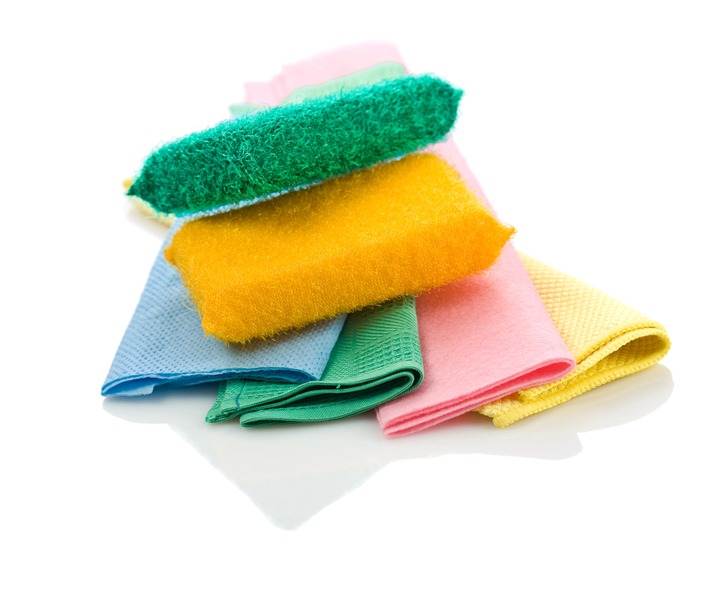
-
Save
Autism and Cleaning: Easing Sensory Overload Before You Begin
If cleaning feels uncomfortable, distracting, or straight-up unbearable, you’re not imagining it. Being in sensory overload is hell-ish when doing housework. You may be used to having to “push through it”, but you can reduce sensory stress before you start.
Start with your clothes
Try to wear comfortable clothes. Think soft fabrics, non-restrictive layers… anything that helps your body relax instead of tense up!
Get the right tools
Choose tools that your senses tolerate. For that, you can test different textures. For example, I’ve discovered that I can’t use certain microfibers. They make my skin crawl, while some others are perfectly fine.
And the right products for your nose
I prefer to use fragrance-free products, or at least some that don’t smell that much. If finding them is difficult where you live, I suggest searching for organic or hypoallergenic cleaners. You could be lucky with them.
When each product has a different fragrance, they can mix more or less happily. Using multi-purpose cleaners can reduce your sensory overwhelm.
I’ve bought a steam cleaner. On top of being efficient to clean, that thing doesn’t smell at all, as it only needs clear water. Be sure to fully empty its tank after use, though. Otherwise, it may have a moldy odor the next time you put it on.
Lower sensory input
You can also make a few small adjustments to make cleaning easier:
- Wear noise protection (I love my noise-cancelling headphones)
- Use gloves for textures
- Dim harsh lighting (or wear sunglasses)
If you want more ideas for creating a low-sensory environment, this guide on managing sensory overload in adults offers really practical suggestions.
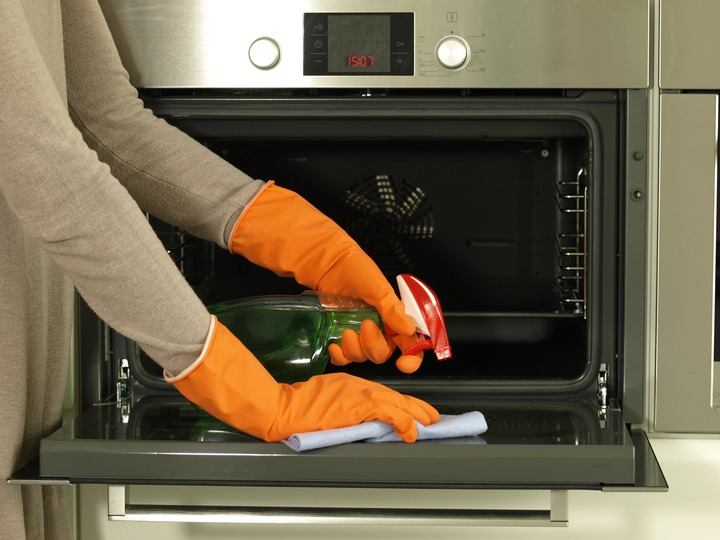
-
Save
Why a Cleaning Routine Helps Autistic Brains
Routines can feel intimidating, but the right one makes cleaning feel far more doable.
Routines reduce decision fatigue
You no longer have to figure out where to start each time. The routine decides for you, and you just need to follow along.
They create predictability
Your brain doesn’t have to prepare for something new each time. You’ll move on to the next step without much thought.
Tasks feel smaller when they’re expected
Cleaning becomes a simple, familiar action instead of a giant, overwhelming project. When your routine is detailed enough, you have a checklist of small tasks that are more doable.
Autism and cleaning routines often work well together, but it's not for everyone
They’re a tool, not a requirement. Understanding how they help can still ease frustration. And if routines feel too big, you might prefer starting with small habits instead. Here’s a post that can help: 10 easy habit examples for a spotless home
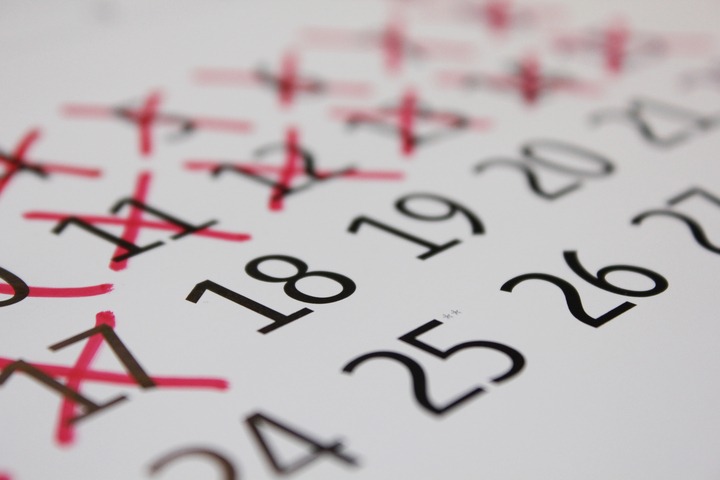
-
Save
Cleaning With Autism When Following Your Routine Gets Hard
Life happens. Energy dips. Burnout hits. And suddenly, the routine that worked last week doesn’t work today. That doesn’t mean you’ve failed: it means you’re human.
When it happens occasionally
It’s good to decide beforehand what you’ll do in that case, so that when it happens, your B plan is ready.
Personally, if I miss a task, I try again the following week. But if I drag it halfway to its next scheduled date, I drop it entirely. It prevents the overwhelm of a discouraging backlog that seems to contain everything but the kitchen sink.
When it happens regularly
It’s feedback, not failure. Usually it means:
- The routine is too ambitious for this season of your life
- You may do some tasks more often than is really needed
- Your energy or your bandwidth has changed
A great question to ask is: “What’s still clean-ish when I’m supposed to clean it again?” If it still looks fine, you can safely stretch the timeline.
For example, you’re supposed to dust any shelf weekly. Some of mine get a monthly care, and those at the top of the bookshelves in the living room? Frankly, I clean them only every 3 months. If someone goes looking that high, they deserve to see dust.
And if you ever need to focus only on the essentials because guests are coming over, this guide can help: What to clean before guests arrive

-
Save
Autism and Cleaning: You Can 100% Do This
Autism adds real challenges to house cleaning, but none of those challenges mean you can’t have a calm, manageable home where you enjoy living. You don’t need perfection, you need alignment. Cleaning gets easier the moment you stop fighting your brain and start working with it.
So, try one tiny adjustment this week and see how it feels. You deserve a home that supports you, not feeling drained by it.
Want to try a routine? I let you check my weekly cleaning routine.
It’s not about a lack of motivation or discipline. It’s about how your brain processes tasks. Sensory overload, executive dysfunction, fluctuating energy, and rigid thinking all influence how autistic adults approach housework and make it more difficult for them than for neurotypical people.
Start tiny: one corner, one item type, or one surface. Small wins break the paralysis and build momentum. It can be tossing the empty food containers on the table or clearing part of a countertop.
The best tips are the ones that reduce sensory input and decision-making: comfortable clothes, low-scent products, routines with micro-tasks, and predictable rhythms.
Consistency for autistic adults means flexible routines, not strict ones. Adjust tasks based on your real energy, not your ideal energy.
First, you didn’t fail. You just need to adjust your routine. Ask yourself what still looks “clean-ish” when you’re supposed to clean it again and stretch the timeline accordingly.
Yes: softer cloths, gloves, fragrance-free cleaners, noise protection, and steam cleaners. The best tool is the one your body doesn’t fight. You’ll need to test them yourself, as they can vary from person to person.
Absolutely! When the cleaning system matches their sensory needs, energy levels, and executive functioning, it’s doable! It’s about doing what works for you, not adding a bunch of neurotypical shaming tips.
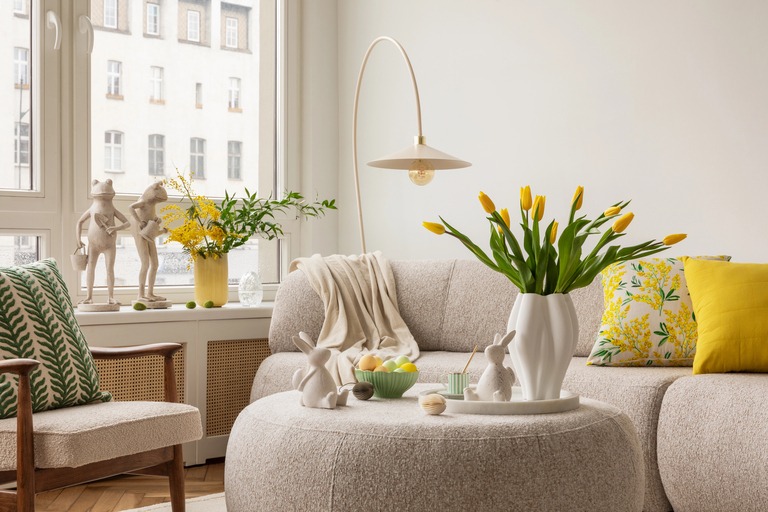
-
Save
Share via:


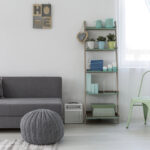

Be the first to leave a comment